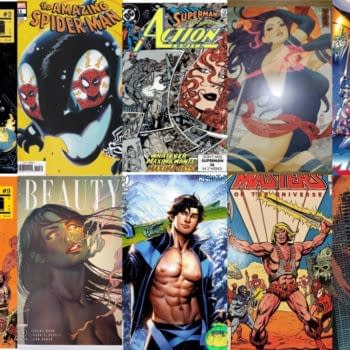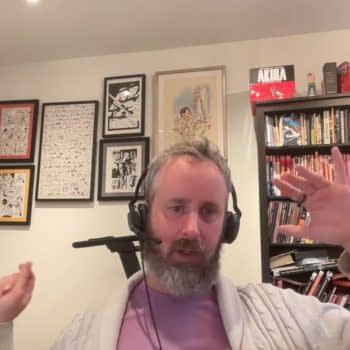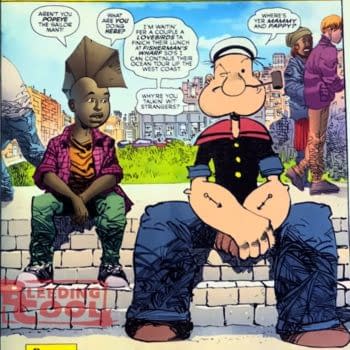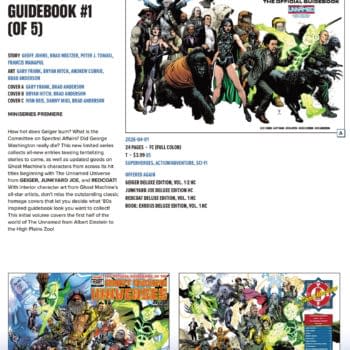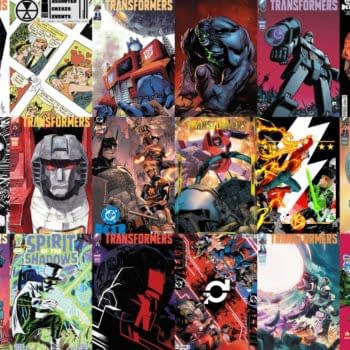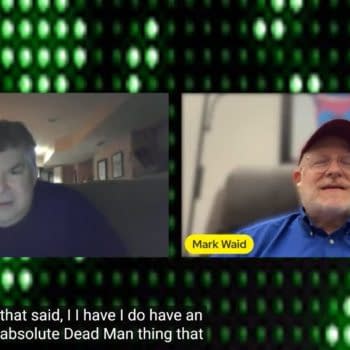Posted in: Comics | Tagged: I May Destroy You, michaela coel, misfits
I May Destroy You's Michaela Coel Debuts Misfits: A Personal Manifesto
I May Destroy You, written by, produced by, and starring Michaela Coel, broadcast by the BBC and HBO, was the best television series, by far, in 2020. Bleeding Cool called it television's first Watchmen, regarding the way it treated character, structure, and the medium of television itself. Ostensibly about a blogger's struggle with a second book, alongside the impact on her life of a sexual assault, it asked the most difficult of questions, delivered a multiple-choice narrative, and hit hard like a sarcastic sledgehammer, delivering memorable moments straight at the viewer like a tennis ball machine.

Now the real-life Michaela Coel is turning one of her previous online presentations into a book, much as her character did. Misfits: A Personal Manifesto will be published in September, by Ebury is the UK publisher and Henry Holt in the US. It will, in part, be based on Michaela Coel's MacTaggart Lecture at the Edinburgh Festival in 2018 in which she talked abott the barriers and racism she had experienced as a young Black woman working in TV, as well as her own sexual assault that informed the narrative of I May Destroy You. The listing reads;
A powerful manifesto on how speaking your truth and owning your differences can transform your life. In this sensational agenda-setting début, Michaela Coel, BAFTA-winning actor and writer of breakout series I May Destroy You and Chewing Gum, makes a compelling case for radical honesty. Drawing on her unflinching Edinburgh Festival MacTaggart lecture, Misfits recounts deeply personal anecdotes from Coel's life and work to argue for greater transparency. With insight and wit, it lays bare her journey to reclaiming her creativity and power, inviting readers to reflect on theirs. Advocating for 'misfits' everywhere, this timely, necessary book is a rousing and bold case against fitting in.
The lecture can be watched in full here.
The prestigious speech is delivered each year by a prominent TV industry figure. Michaela Coel used it to talk about how, like the character in I May Destroy You, she had been sexually assaulted after going for drinks the night before a writing deadline. "I had a flashback. It turned out I'd been sexually assaulted by strangers. The first people I called after the police, before my own family, were the producers" who were "teetering back and forth between the line of knowing what normal human empathy is and not knowing what empathy is at all."
At the time, The Guardian reported that the speech brought audible gasps from the audience, and she talked about the show that would become I May Destroy You and the initial TV network later revealed as Netflix, and how she turned down a million-dollar offer that would have seen Coel sign away all copyright. "I've no mortgage, no credit card, no real kids, no car, happy with my bicycle; money's nice, but I prefer transparency. My stories are my babies, I wanna look after them, so I asked to reserve a portion of my parental rights; my copyright … I used the only power I had; and declined."
The speech also contained hr definition and use of the term 'misfit'. "The term misfits takes on dual notions; a misfit is one who looks at life differently. Many however, are made into misfits because life looks at them differently; the UK's black, Asian, and ginger communities for example … The term can be cross-generational and crosses concepts of gender or culture, simply by a desire for transparency, a desire to see another's point of view. Misfits who visibly fit in will sometimes find themselves merging with the mainstream, for a feeling of safety. Of late, channels, production companies, and online streaming services have found themselves scrabbling for misfits like kids in a playground scrabbling for sweets – desperate for a chew, not sure of the taste of these sweets, these dreams, just aware they might be very profitable. Is it important that voices used to interruption get the experience of writing something without interference at least once?"






